|
|
||
|
|
||
|
|
||
|
|
||
|
|
||
|
|
Scientists |
|
|
|
||
|
|
||
|
|
||
|
|
||
|
|
About Station
National Agriculture Research Project, Yavatmal was established in February, 1990 and is situated on west side of the city on Waghapur road.
During 1999 the Zonal Agriclture Research Station has been remandeted by the ICAR, New Delhi to take up the additional functions of Krishi Vigyan Kendra under NATP.
Agro Climatic Information
| Climate | Semi Arid Tropical |
| Latitude | lies between 19° 26” and 28° 42” N |
| Longitude | lies between 77° 18” and 79° 18” E |
| Minimum temperature | 5.0°C |
| Maximum temperature | 46.1°C |
| Average annual rainfall | 1023.7 mm |
Infrastructure
| Total area | 38.38 ha |
| Area under cultivation including research Area | 28.76 ha |
| Area under road and buildings | 4.99 ha |
| Area under forest and grazing | 4.63 ha |
| Area under irrigation | 2.50 ha |
Mandate
-
To conduct location specific, production oriented need base research in the Agro-climatic zones
- Research oriented towards the needs of local agro-ecological zone with special emphasis on rainfed food grains and oilseeds
Objectives
-
Test different varieties and advanced breeding lines for its suitability and their screening for location specific adaptability
-
Identify and develop varieties of major crops of the zone for resistance to pests and diseases, early maturity and drought tolerance characteristics
-
Identify biological control measures of pests and diseases through the deployment of parasites, predators and pathogenic micro-organism and plant originated compounds
-
Improve crop productivity for better monetary return by developing suitable cropping systems under given farming situation
-
Evolve organic recycling and an integrated nutrient management system
Project Operating at Station
Evaluation of Intra Hirsutum Hybrid Cotton Trials –Rainfed under All India Coordinated Cotton Improvement Programme, Indian Council of Agriculture Research, Regional Research Station, Coimbatore
Research Activities
The achievements in the form of recommendations released in research system are as under :
- From this center maize variety YMC-1 was released which is suitable for sequence cropping
- On sloppy land contour sowing recorded higher yield as compared to across the slope
- Dry seeding of cotton, sorghum, pigeonpea, blackgram and soybean is profitable as compared to timely sowing
- Pigeonpea + Soybean (1:2) and Sorghum + pigeonpea (3:3) intercropping should be adopted for higher yield
- For getting higher yield of minor millets (Bhagar or Kodo) the crops be fertilized with 30 kg N/ha
- For getting higher yield of gram var. ICCV-2 should be sown on 25th October at 30×10 cm spacing
- For obtaining higher yield of upland drilled paddy, the crop should be kept weed free by weeding and hoeing in the initial stages. Pre-emergence application of herbicide i.e. Butachlor, Stomp 30 EC recommended for control of weeds in the initial stages for better yields as compared to no weeding and hoeing.
- For obtaining higher yields of Kharif crops, sowing should be done on BBF i.e. sowing on broad bed of 180 cm followed by furrow having 30 cm width and 15 cm depth. Considering the higher gross monetary returns, Pigeonpea + Soybean intercropping (1:2) at 30 cm distance is recommended under upland condition in moderately high rainfall zone
- Pigeonpea + Soybean (1:1) intercropping as well as Soybean – Gram and Soybean – Safflower cropping sequences are profitable
- Gram + Safflower and Safflower + Rabi Sorghum intercropping systems are beneficial
- For obtaining higher yield, sowing of greengram variety TARM-2 in first week of October be undertaken
- For obtaining higher yield of Rabi Mung var. TAP-7 on pre-soaking irrigation, optimum plant population of 2.2 lakh/ha should be maintained with 45×10 cm or 30×15 cm spacing
- Rajma var. HUR-15 under irrigated condition should be sown in the first fortnight of November to obtain optimum grain yield. At fertilizer level of 120 kg N/ha and 60 kg P2O5/ha rajma variety HUR-15 recorded optimum grain yield
- Under low land conditions in early paddy crop, the greengram var. TARM-2 and TAP-7 are profitable as compared to local variety.
- In Central Vidarbha Zone, sugarcane var. Co-671, Co-86032 and Co-7219 are promising
- In Central Vidarbha Zone, soybean should be sown during the last week of June for getting higher yields. PK-472, JS-80-21, PKV-1 and TAMS-38 varieties of soybean recorded higher yield as compared to MACS-13. Hence these varieties should be preferred
- Two line BBF method i.e. opening of furrow after every two rows should be adopted to get higher grain yield of soybean in high rainfall area.
- Rabi mung (TARM-2) should be sown in the first fortnight of November for getting higher yield, it should be fertilized with 20 kg N and 40 kg P2O5/ha.
- For effective control of Saccharum spontanum (Kans), tractor ploughing followed by three fortnightly harrowing and rhizome collection after each harrowing is recommended. For effective control of Kans, spraying of Glyphosate 0.8% + 2% Urea as foliar spray is also recommended
- In Central Vidarbha Zone, for obtaining higher yield of soybean application of 75 kg P2O5/ha is recommended
- In Central Vidarbha Zone, growing of sugarcane var. Co-7714 is recommended
- Early maturity (80-85 days) Maize Composite AMC-1 (Akola Maize Composite – 1) is recommended for pre-release in Vidarbha region for Kharif cultivation
- For improving fertility status of soil and obtaining higher GMR per hectare, intercropping of greengram in cotton and mulching the same after first pod plucking should be done
- For getting higher yield of chickpea (ICCV-2), the crop be fertilized with 18 kg N + 46 kg P2O5/ha (2 bags of DAP) with three irrigations at 30, 45 and 60 DAS.
- HNPV 250 LE/ha + Endosulfan 0.035% or NSKE 5% + Endosulfan 0.035% with two sprays starting from ETL (5% pod damage) are recommended for the management of Helicoverpa armigera on tur
- IPM approach with or without intercrop of maize (3:1), NSKE 5% at ETL, Endosulfan 0.07%, HNPV 250 LE/ha and M. Parathion 2% dust @ 20 kg/ha at an interval of 15 days is recommended for the management of pod borer complex of tur.
- In cotton, cowpea should be grown in between 2 rows of cotton as intercrop and pigeonpea should be grown with jowar as intercrop (3:3) to have minimum infestation of Helicoverpa armigera. Cotton + Pigeonpea should be avoided as more infestation is developed in this cropping system
- For getting highest maize grain yield, crop should be sown in the 26th m.w. at the spacing of 60×15 cm
- In C.V.Z. For getting highest gross monetary return, maize should be preferred over sorghum. For higher yield and GMR maize should be fertilized at 120 kg N and 60 kg P2O5/ha and 30 kg K2O/ha.
- For effective control of weeds and getting higher grain yield of maize, pre-emergence application of Atrazin weedicide @ 0.5 kg ai/ha + hoeing + weeding at 20 days is recommended.
- For the control of Powdery mildew of mustard, application of wettable sulphur 0.25% or Carbendazim 0.1%, at initiation of disease and depending on severity one more spraying at 15 days interval is recommended
- For effective management of aphids on hybrid sorghum, spraying Chlorpyriphos 20 EC @ 0.05% or Imidachloprid 17.8 SL @ 0.0035% is recommended.
- For management of pod borer on gram, to obtain higher cost benefit ratio spraying Bacillus Thuringiensis @ 0.750 lit per hectare is recommended at ETL based
- For the control of grey mildew disease of cotton, application of Tridemorph 0.07% or Propiconazole 0.05% or Carbendazim 0.1% at disease initiation and considering severity second spraying after 15 days is recommended.
- For the control of bacterial pustule disease of soybean, spraying of Streptocycline 200 ppm or Streptocycline 100 ppm + Mancozeb 0.25% or 5% neem seed extract at disease initiation and depending on severity second spraying after 15 days is recommended
- For the control of powdery mildew of sesamum, application of Tridemorph 0.05% or Carbendazim 0.1% or wettable Sulphur 0.25% or 5% neem seed extract at disease initiation and considering severity second spraying after 15 days is recommended.
- For effective management of bollworms on cotton, to obtain higher yields, more monetary returns and better ICBR, IPM modules with
- Mixed cropping with bhagar/barn yard millet (Echinochloa frumentaceae) (@ 250 g of bhagar seed/ha)
- Two releases of Trichogramma chilonis @ 1.5 lakh/ha at 45 to 50 DAG & 55 to 60 DAG
- Mechanical control of bollworms larvae (60 to 70 DAG)
- and sprayings of NSE 5% at ETL, HaNPV @ 500 LE/ha (1 LE = 1×109 POB) at ETL and B.t. @ 0.75 kg/ha at ETL
- For effective management of shootfly on Sorghum, to obtain higher yield and higher monetary returns and ICBR, seed treatment of Thiomethoxam 70 WS @ 5 g / kg of seed’’ is recommended
- For effective management of shootfly on Sorghum, to obtain higher yield and net profit, two sprays of Spinosad @ 0.01% at 7 and 17 days after sowing considering its higher price are recommended under seed production programme.
Soil Moisture Contents
moisture conservation which were found effective in increasing the crop yield at every level of soil depth in different treatments and toposequence
- In upper toposequence Deshi cotton i.e. G. arboreum is found beneficial as compared to hirsutum cotton. Inclusion of sorghum as an intercrop in arboreum cotton was found superior over sole hirsutum cotton
- Cotton based intercropping system was found superior over sole cotton in middle toposequence
- In lower toposequence cotton + soybean – chickpea sequence cropping system was found economically beneficial as compared to sole cotton. Under cotton – chickpea sequence cropping, chickpea under irrigated condition found next superior cropping pattern
- In all the top sequence, moisture conservation measures such as opening of ridges and furrows and contour sowing was found beneficial in conserving in situ soil moisture and reflected in increasing yield of crops in cotton based cropping system than flat sowing.
- One or two supplemental irrigation from harvested water or recycling of water is the best way of increasing the yield as well as monetary return
- Intercropping of hirsutum cotton + greengram / blackgram / soybean / pigeonpea with 100% RDF + Soil moisture conservation through ridges and furrow or contour technique found to increase cotton equivalent yield and net returns substantially as compared to sole crops in sloppy land
- For the management of soybean root rot/ collar rot, seed treatment with thiram + carbendazim + Tricoderma @ 3+1+4 g per kg seed, respectively is recommended
- Ø For the management of Taphrina leaf blotch of Turmeric, three foliar sprays of Difenconazole 0.1% or Propiconazole 0.1 % are recommended. First spray at the initiation of disease followed by two spray at 15 days interval
Transfer of Technologies
The various nature of extension activities is being performed by the personnel of this office, as follows :
- Agro Tech. 2002 – successfully organized by this centre
- Involvement in monthly field visits as well as diagnostic field visits has become the integral part of this station since its inception
- Working as an expert / Member of District Seed Committee
- Actively participating in SREP execution, chaired by Hon’ble Collector of the district
- Organized as well as participated in Training programme of farmers, farm women’s, rural youth, extension functionaries and Self Helf Groups
- Involment in Mass Media i.e. TV talk, AIR and publishing the technical folders and articles in Newspapers, Krishi Patrika and Magazines
- Participated in Agril. Exhibition, Krishi Melawa, Shivar Pheri organized by the University, State Agril. Department, Z.P. and NGOs
- Organized Krushak Vigyan Manch (monthly activity) for the rural farmers
- Scientist of this centre participated in ‘Hallow Kastskar’ on line programme of AIR, Yavatmal regularly
Contact Information
Office of The Associate Director Research
Zonal Agriculture Research Station, Central Vidarbha Zone
Waghapur road, Yavatmal – 445 001
Ph. No. (07232) 241745 Fax. (07232) 248235
E-mail : adr_zars ytl@rediffmail.com

 January 2nd, 2014
January 2nd, 2014 


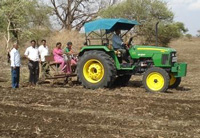


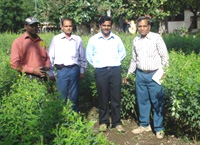
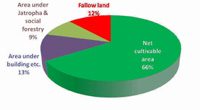

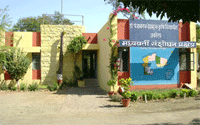
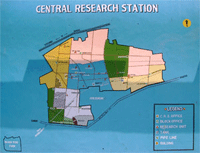
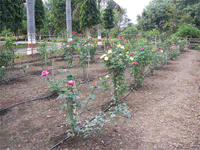
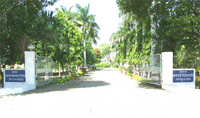
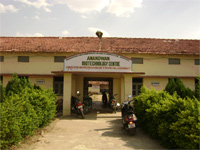

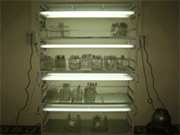
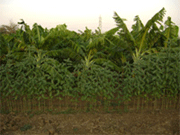
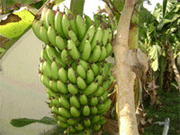








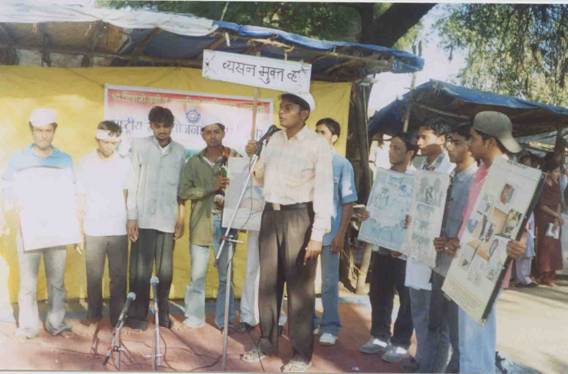


















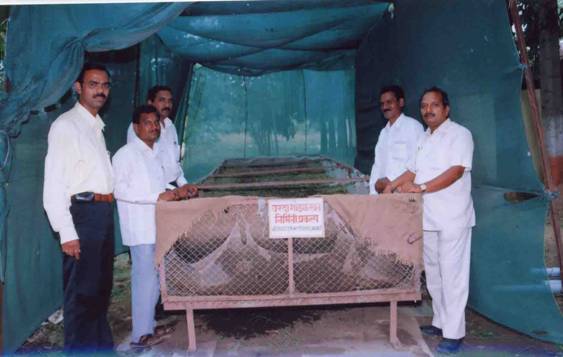

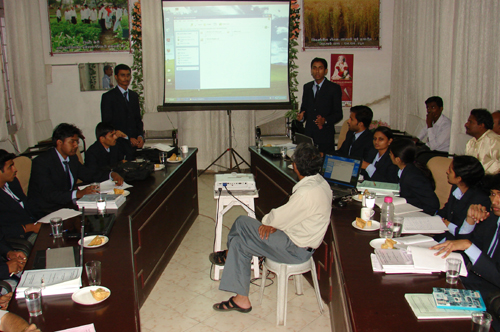

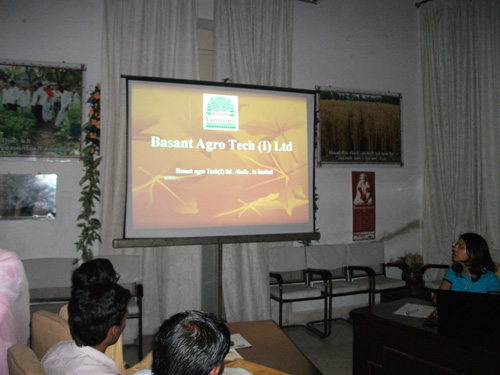
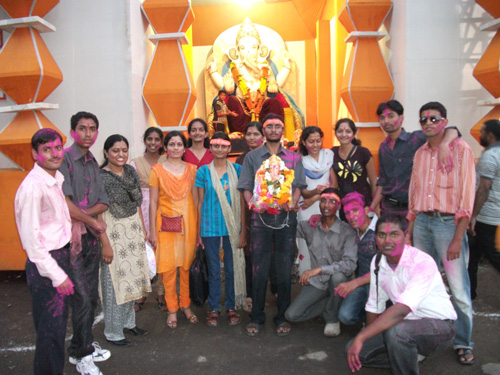



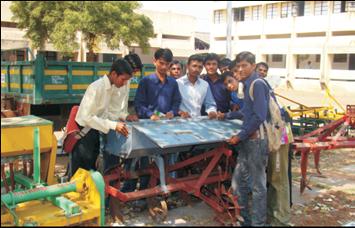








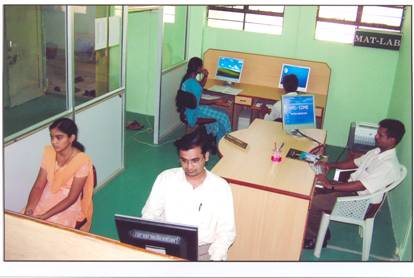


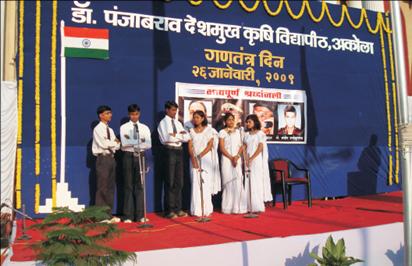
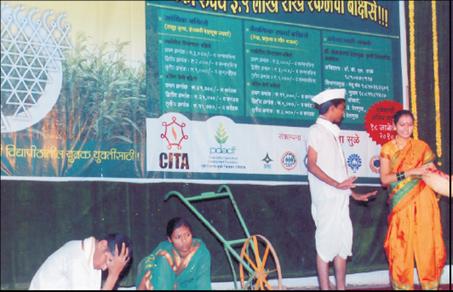








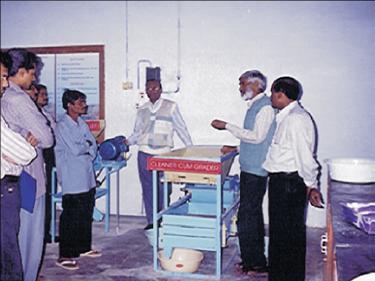



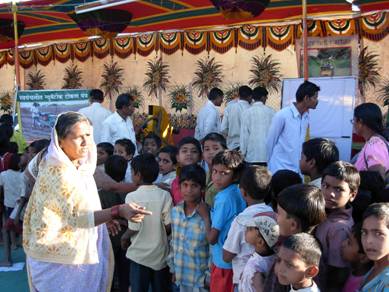



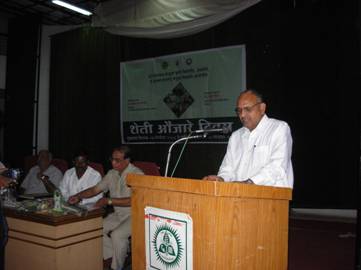
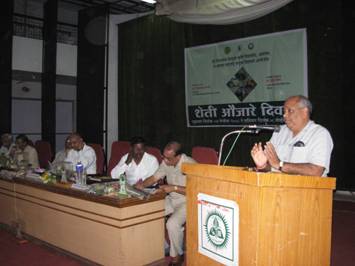



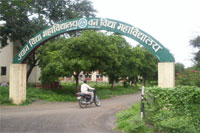

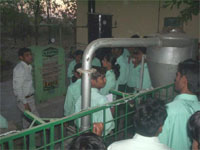
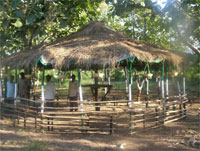
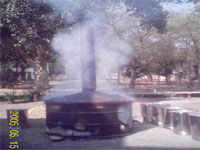
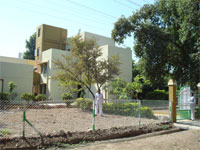
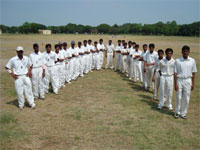
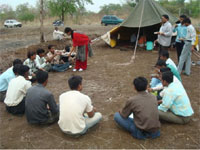
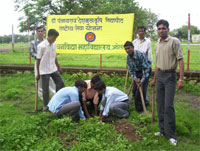
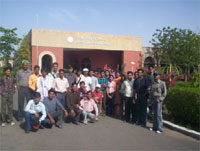
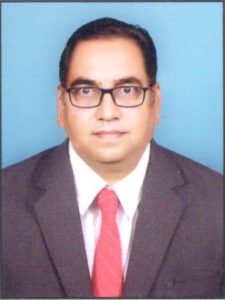
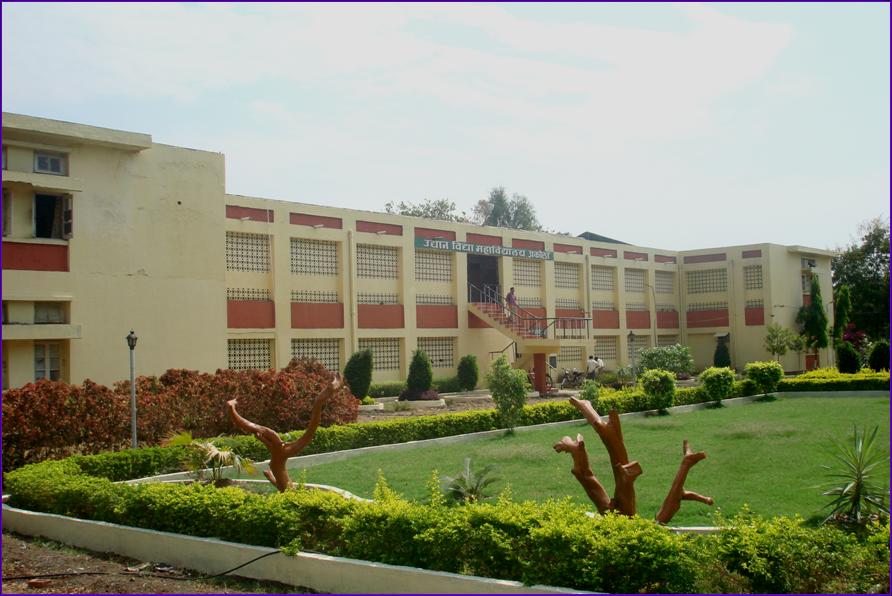

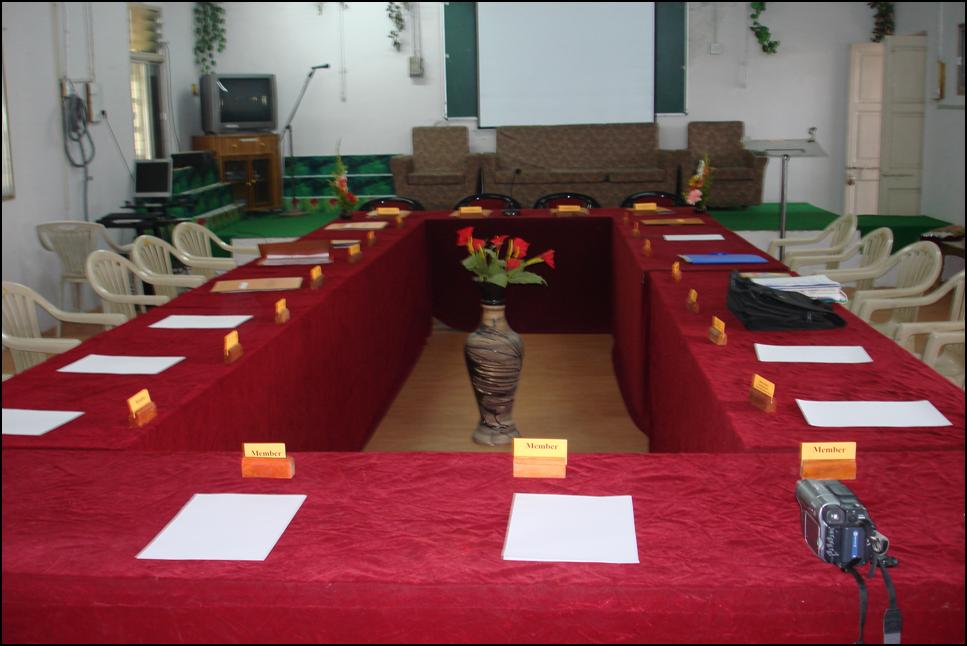


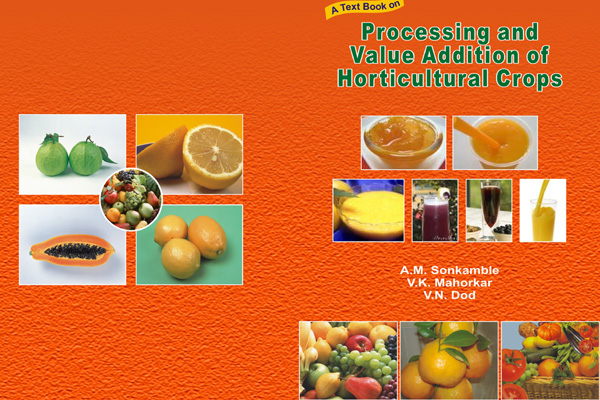


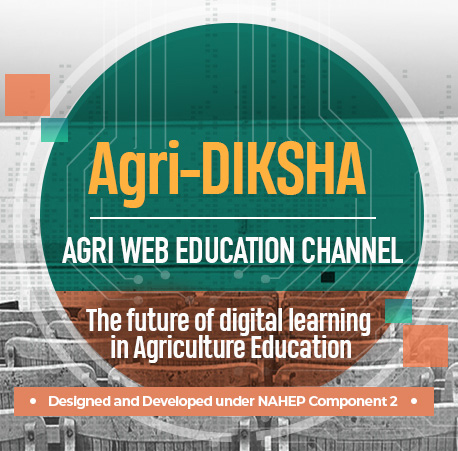

 Krishikosh Repository
Krishikosh Repository


